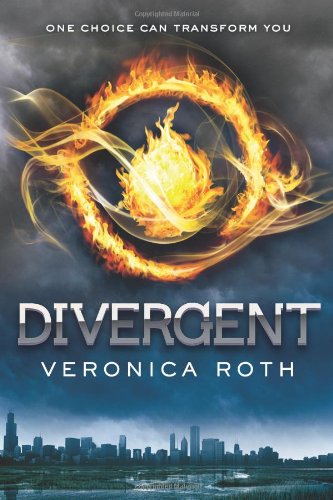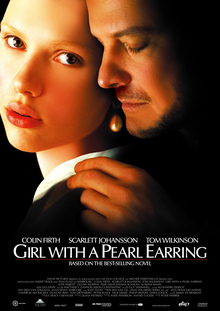I've frequently written of my love-hate relationship with Philippa Gregory. On one hand, she gets people interested in history. That's a huge plus. On the other hand, she twists and distorts the history she writes about so much that one can hardly recognize it. I got this book free on PaperbackSwap, so I didn't go into it with many illusions of greatness, and figured that, if it did suck, I wouldn't mind any lost money.
So let's begin. Note: spoilers ahead.
 The Boleyn Inheritance
The Boleyn Inheritance takes place five years after the ending of
The Other Boleyn Girl. King Henry had Anne Boleyn executed so he could marry her lady-in-waiting, Jane Seymour. Jane's short career on the throne of England ended with her death in childbirth with Henry's only son and heir, Prince Edward. Now, two years after Jane's death, Henry has decided to marry again, this time to German duchess Anne of Cleves, a withdrawn, frightened young woman who has spent the majority of her life closeted and abused in her brother the duke's court. Desperate for a new life and freedom from this oppression, Anne is thrilled to accept the King's proposal -- until she arrives in England and sees she has traded one tyranny for another. King Henry is no longer the handsome, enchanting, virile young man he once was. At nearly fifty, he is an old, fat, wounded, pompous tyrant who kills anyone who displeases him. Also at court are Jane Boleyn, Lady Rochford, the wife of George Boleyn and sister-in-law to Anne, who is well-known for producing the evidence that sent both husband and queen to their deaths, and little Katherine "Kitty" Howard, an empty-headed lady-in-waiting only motivated by material possessions. All three ladies arrive at court with their former queen's death hanging over their heads...wondering if their fates are to be anything like hers.
In The Other Boleyn Girl, Gregory told the story in first-person POV, and there was only one heroine and speaker, Mary Boleyn. This time, Gregory employs three female speakers -- Anne of Cleves, Jane Boleyn (Lady Rochford), and Katherine Howard. IMO, not a good move. Anne of Cleves' disastrous marriage to Henry VIII lasted six months. While she makes for an interesting heroine throughout the book (and the only truly likeable character!), she does not have enough influence after her marriage to make her a heroine, and Gregory (again) resorts to fabricating history in order to give her more of a story. I must say though that I am a fan of Gregory's explanation for the King's instant dislike of Anne of Cleves, something that has never really been proven.
Jane Boleyn was a confusing choice of character as well, in the beginning. Again Gregory falls into the trap of repetitive writing, and in Jane's case, it doesn't even make sense. She is one of the great villains of TOBG, the shrewish wife who constantly shadows her wayward husband, and repays his infidelities by giving the evidence that will condemn him to death. Yet she opens Boleyn Inheritance with constant mooning about her late husband and sister-in-law, and how she loved and worshiped them, and how sad she is that they are gone. This didn't make an ounce of sense to me, and over time, became so incredibly monotonous that I found my eyes glazing over through most of Jane's chapters. However, it's worth it when she has the final showdown with the devious Duke of Norfolk (the man who shoved Anne Boleyn and, later, Katherine Howard onto the throne), where the Duke exposes her for who she really is. That was the serious bright part of the book for me. Then it all made sense. Unfortunately, this began on page 493, and is a serious case of "too little, too late."
Katherine Howard. Dear God, I know that history has shown her to be nothing more than a wanton skank who flirted constantly, would do anything for a new dress or a pretty jewel, and had multiple lovers when she was in bed with the king. But she is so fundamentally stupid in this book that it really boggles the mind. I was amazed to see, in the Author's Note, that Gregory claims she tried to look past the convention that Howard was considered stupid, but I saw none of that in her writing. Her goal was to make Katherine appear child-like and innocent, and she did succeed at that. But she also succeeded in making her a complete idiot. The majority of Katherine's chapters begin with her amassing all of her presents, trinkets, and belongings -- apparently, all that is important to her. Even her "love affairs" are all superficial; she thinks nothing of the men who die for her after their deaths. Her spoiled stupidity doesn't go far towards making her a sympathetic character, and it is there that Gregory fails.
But the part that irritated me most of all -- most of all -- is the scheme Gregory cooks up between the Duke of Norfolk and Jane Boleyn to entice Katherine Howard to commit adultery in order to produce an heir. What an idiotic notion. After watching Anne Boleyn go to the scaffold on the same charges, the Duke of Norfolk would never have deliberately lead Katherine astray into the bed of another, even for lands, titles, and prestige. He was ambitious; he was not stupid. Katherine's affairs with Thomas Culpeper and Francis Dereham were the product of the reckless flirtations of a teenager, not of a plot contrived by an ambitious courtier. I marvel that Gregory can claim this is "historical fiction" at all; even Jane Boleyn in her feigned "madness" would never have contrived such nonsense.
Rating: **



















